Do Social Class Inequalities Effect Political Engagement?
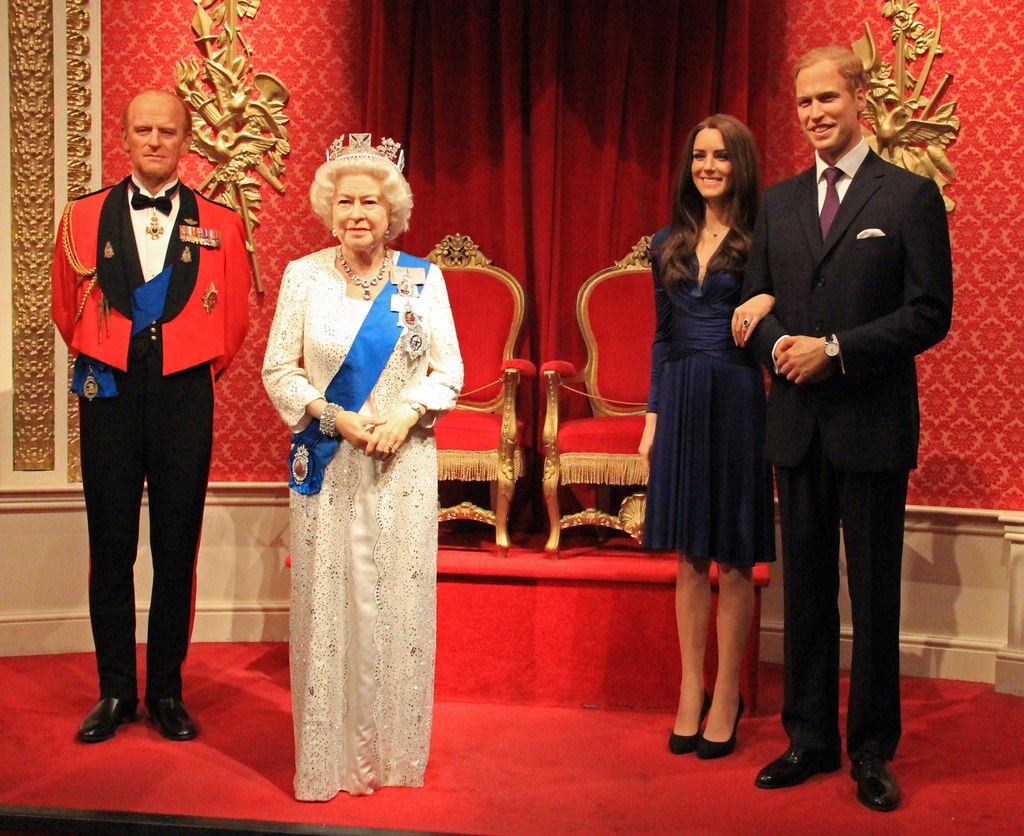

Looking back at my previous blog on young people and political engagement, I think it is safe to say that there are apparent inequalities in political engagement. However, it is not just young people that are facing inequalities within voting, we simply cannot overlook the social class inequalities either. There is huge evidence that suggests your level of access to education interlinked with your social class has a huge effect on political engagement. My argument here is, education and social class are key in understanding the inequality of voting and political engagement, here’s why!
Let us first start with defining social class, according to Wright (2003) social class is defined as groups of people who share subjective yet apparent attributes, used by others to rank them within a system of economic stratification. In the United Kingdom, there are six social classes to which interlink with their social grade as shown in figure one.
Figure One: Social classes in the United Kingdom (Ipsos MORI, 2009)
So what does social class have to do with inequalities in political engagement? There has been legitimate research that suggests that people who come from a lower social class or have a social grade of DE are at a disadvantage in terms of political engagement. For starters, there is limited access to political education to category DE.
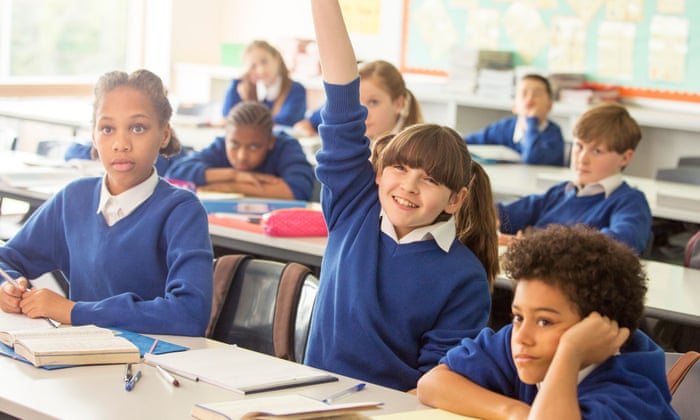
In a school context, teachers tend to be viewed as “gatekeepers” to subject knowledge, this means that teachers are often held responsible for what students learn at school (Hoskins et al, 2013). In relation to political engagement, it can be argued that certain students only have partial access to this. Information about politics within school is often voluntary, not compulsory, yet students from middle class backgrounds have been found to be associated with having higher levels of political engagement (Hoskins et al, 2013). Although, attempts have been taken to tackle inequalities in political socialisation through institutions, Hoskins et al’s (2017) research results show that although political activities in school enhance political engagement, the methods are not effective in reducing social class inequalities.
With that being said, Does a Lack of Social Mobility = Lack of Political Mobility?
Britain’s economic divide has had a huge political impact. As the rich are 64% richer than before the recession, while the poor are 57% poorer (Morris, 2015). As evident in figure one, social classes DE only make up 23% of the population where as classes AB make up 27% of the population. Therefore, class AB having a higher turnout than class DE means the party majority of AB voted for are most likely to win the Elections. It is evident that AB have an advantage in political engagement as in the 2015 general election, 75% of AB voted for Conservative whereas, 57% of DE voted Labour and the winning party was Conservative (Ipsos MORI, 2015). Seemingly, there has not been any social mobility, by this I mean, there has been little opportunity for those within the DE category to move up in social class, if anything the richer category AB becomes, the poorer category DE becomes. As a result of the lack of social mobility, there is also a constant lack of political mobility, this meaning those from disadvantaged backgrounds have little access to political information and eventually this prevents any fair or positive changes to the country (Brady et al, 2014).
So we know limited education and unequal numbers contributes to inequalities in political engagement by social class, but what are the other factors?
As mentioned earlier, limited access to political knowledge to the lower classes is one factor, but this factor then leads to an increase of the lower classes disinterest in politics as a whole. To make matters worse, seeing little to no improvement in justice time and time again would seemingly yet inevitably spark a growing sense of cynicism in politics, this meaning,the growing belief that politics as a whole is motivated by self‐interest. These factors would then contribute to the DE category to stop voting as a whole. I myself had been told by others to not vote in the instance of Brexit due to belief that voting will never go in the minority vote’s favour. Eventually, a lack of voting will lead to a lack of accurate representation of the United Kingdom population, this is evident in figures two and three.
Figure Two: 2015 General Election Turnouts By Social Class (Ipsos MORI, 2015)
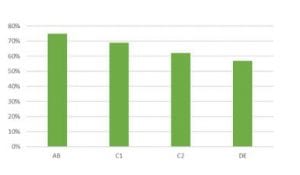 Figure Three: Social class voting turnouts in the 2017 General Election (Iposos Mori, 2017)
Figure Three: Social class voting turnouts in the 2017 General Election (Iposos Mori, 2017)
It is abundantly clear that those in category AB are more likely to be the majority vote whereas the DE category are most likely to be the minority vote as a result of social class inequalities.
The social class inequality in political engagement needs to be addressed a lot more and dealt with righteously if we are to reflect Britain as representative and just in BOTH principle and practice. The solution to this injustice involves an even distribution of political knowledge to all, social mobility and encouragement towards everyone to vote if we are to help improve political engagement for all.
Bibliography
Brady, H. E. Schlozman, K. L. and Verba, S. (2014) Political Mobility and Political Reproduction from Generation to Generation, [Online] Available at: journals.sagepub.com/doi/pdf/10.1177/0002716214550587 [Accessed on: 2/3/19]
Hoskins, B. Janmaat, J. G. and Villalba, E. (2013) Learning Citizenship Through Social Participation Outside and Inside School: An International, Multilevel Study of Young People’s Learning of Citizenship, [Online] Available at: https://onlinelibrary.wiley.com/doi/epdf/10.1080/01411926.2010.550271 [Accessed on: 6/3/19]
Hoskins, B. Janmaat, J. G. and Villalba, E. (2017) Tackling Inequalities in Political Socialisation: A Systematic Analysis of Access to and Mitigation Effects of Learning Citizenship at School Available at: https://www.sciencedirect.com/science/article/pii/S0049089X16304458?via%3Dihub p11 [Accessed on: 2/3/19]
Ipsos MORI (2009) Social Grade: A Classification Tool, [Online] Available at: https://www.ipsos.com/sites/default/files/publication/6800-03/MediaCT_thoughtpiece_Social_Grade_July09_V3_WEB.pdf [Accessed on: 6/3/19]
Ipsos MORI (2015) How Britain Voted in 2015 [Online] Available at: https://www.ipsos.com/ipsos-mori/en-uk/how-britain-voted-2015 [Accessed on: 4/3/19]
Ipsos MORI (2017) How Britain Voted in 2017 Election, [Online] Available at: https://www.ipsos.com/ipsos-mori/en-uk/how-britain-voted-2017-election [Accessed on: 4/3/19]
Morris, N. (2015) Britain’s Divided Decade: The Rich Are 64% Richer Than Before The Recession, While The Poor Are 57% Poorer, [Online] Available at: www.independent.co.uk/news/uk/home-news/britains-divided-decade-the-rich-are-64-richer-than-before-the-recession-while-the-poor-are-57-10097038.html [Accessed on: 3/3/19]
Wright, E. O. (2003) Social Class, [Online] Avaliable at: http://citeseerx.ist.psu.edu/viewdoc/summary?doi=10.1.1.143.259[Accessed on: 5/3/19]

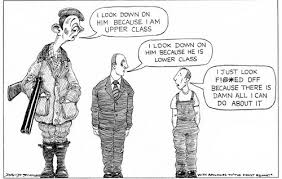
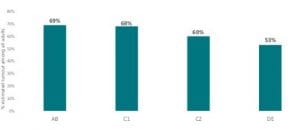
Leave a Reply